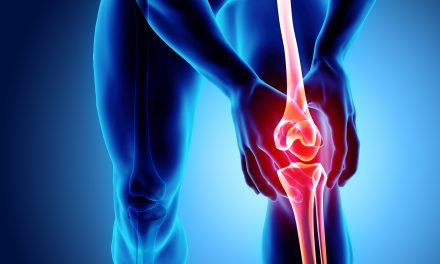Arthritis is a common condition characterized by joint pain and inflammation, which can significantly impact an individual’s quality of life. There are various forms of arthritis, each with its own causes and treatment options. Management of arthritis pain and symptoms often includes medication, physical therapy, and lifestyle changes. Dietary supplements may also play a role in managing arthritis, and numerous people with this condition have considered them as adjunctive treatments.
The effectiveness of supplements for arthritis relief is a subject of much interest, as these products can contain ingredients like glucosamine, chondroitin, and omega-3 fatty acids that are thought to support joint health. Glucosamine in particular is renowned for its potential to delay cartilage breakdown and alleviate osteoarthritis pain. However, it’s crucial to base supplement choices on evidence-based research and to be aware of potential risks and side effects.
Consulting healthcare providers is essential before beginning any supplement regimen, especially for individuals with arthritis, to ensure they are used safely and effectively. They can help patients understand which supplements, if any, might be beneficial for their specific type of arthritis and what the scientific evidence says about their likely benefits and risks. Additionally, lifestyle modifications and support from the arthritis community could further enhance overall arthritis care.
Key Takeaways
- Arthritis involves joint pain and inflammation, often necessitating a multi-faceted approach to management.
- Dietary supplements like glucosamine might support joint health, but their effectiveness can vary.
- Professional consultation is critical to safely integrate supplements with conventional arthritis treatments.
Understanding Arthritis
Arthritis encompasses a range of joint disorders characterized by inflammation, pain, and decreased mobility. It primarily affects the joints, where two or more bones meet, and is associated with a deterioration of cartilage, the connective tissue that cushions the ends of the bones.
Types of Arthritis
Arthritis is not a single disease but rather a term that refers to over 100 different joint conditions. The two most prevalent types are:
- Osteoarthritis (OA): It is the most common form of arthritis, occurring when the cartilage that covers the ends of bones in the joint gradually wears away. This wear and tear can lead to pain, stiffness, and other symptoms.
- Rheumatoid Arthritis (RA): An autoimmune disorder where the immune system mistakenly attacks the joints, leading to inflammation and damage to joint tissue.
Common Symptoms
The symptoms of arthritis can vary depending on the type but typically include:
- Joint Pain: A universal symptom, joint pain from arthritis can range from mild to debilitating.
- Inflammation: Swelling, redness, and warmth in the joints are common symptoms, indicating inflammation.
- Stiffness: Joints may be stiff and difficult to move, especially after inactivity or in the morning.
- Reduced Range of Motion: Those with arthritis often experience a decreased ability to move their joints freely.
Understanding these aspects of arthritis is crucial for individuals looking to manage their condition effectively, including considering appropriate supplements for symptom relief and joint health.
The Role of Nutrition in Arthritis Management
Adequate nutrition is fundamental in the management of arthritis. Specific nutrients play a pivotal role in maintaining joint health and can alleviate symptoms associated with the condition.
Importance of a Balanced Diet
Arthritis patients should focus on a balanced diet that includes a variety of nutrients to support overall health. This diet should consist of lean proteins, fruits, vegetables, whole grains, and healthy fats. Proper nutrition helps in managing body weight, reducing joint stress, and providing the required energy and nutrients for the body’s functioning.
Nutrients that Support Joint Health
Protein is essential for the repair of body tissue and can be found in lean meats, fish, beans, and legumes. Fish, especially those rich in omega-3 fatty acids like salmon and mackerel, is known to have anti-inflammatory effects beneficial for arthritis sufferers. Incorporating foods high in omega-3s or considering supplements such as fish oil can help reduce joint swelling and pain.
| Nutrient | Food Sources | Benefits for Arthritis |
|---|---|---|
| Fatty Acids | Flaxseeds, Walnuts, Fish | Reduce inflammation |
| Omega-3s | Fatty Fish, Algae, Hemp Seeds | Decrease joint stiffness and tenderness |
| Calcium | Dairy Products, Leafy Greens | Essential for bone health and strength |
| Vitamins | Varied Diet, Fortified Foods | Various roles including tissue repair & immunity |
Calcium is vital for bone health; dairy and green leafy vegetables are good sources. Arthritis patients may also need to ensure they consume an adequate amount of vitamins, especially Vitamin D, which aids in calcium absorption and can be obtained from fortified milk or exposure to sunlight. A guide provided by the Arthritis Foundation thoroughly researches key vitamins and minerals for arthritis management, highlighting how these nutrients support joint health. It’s important to remember that no single food or supplement will cure arthritis, but a strategic approach to nutrition can play a substantial role in managing the disease.
Supplement Overview for Arthritis
Arthritis sufferers often seek supplements to relieve joint pain and support joint health. Research indicates certain supplements may offer beneficial anti-inflammatory properties.
Types of Supplements
- Glucosamine: Aimed at delaying cartilage degradation and improving joint mobility, glucosamine is frequently recommended for osteoarthritis.
- Chondroitin: Often used in conjunction with glucosamine, chondroitin may help to reduce pain and increase joint function.
- Omega-3 Fatty Acids: Found in fish oil supplements, omega-3s possess anti-inflammatory effects that can help reduce stiffness and joint pain.
- Curcumin: The active component in turmeric, curcumin, can reduce inflammation and is supported by evidence revealing its potential in easing symptoms of arthritis.
- MSM (Methylsulfonylmethane): This organic sulfur compound is thought to support the connective tissues and has anti-inflammatory properties.
- Collagen: Supplements containing collagen may support joint health and has been found in some studies to relieve joint pain.
How Supplements Can Help
Supplements may provide relief by:
- Reducing Inflammation: Ingredients like omega-3 fatty acids and curcumin can offer anti-inflammatory benefits, potentially decreasing joint inflammation and pain.
- Supporting Joint Health: Compounds such as glucosamine and chondroitin have been researched for their ability to support joint health and possibly slow the progression of joint damage.
Common Supplements for Arthritis Pain Relief
Arthritis patients often turn to dietary supplements to manage pain and inflammation. The most notable include glucosamine and chondroitin for cartilage health, omega-3 fatty acids for their anti-inflammatory effects, and curcumin, a component of turmeric with pain-relieving properties.
Glucosamine and Chondroitin
Glucosamine and chondroitin are vital components of cartilage, the tissue that cushions joints. Supplements containing these substances may help to alleviate pain and improve joint function in individuals with osteoarthritis. Some studies suggest that a combination of glucosamine and chondroitin can be particularly effective in providing relief from arthritis symptoms.
Omega-3 Fatty Acids
Omega-3 fatty acids, particularly those found in fish oil, are well-known for their anti-inflammatory effects. They may help reduce stiffness and joint pain associated with arthritis. The body does not produce omega-3s on its own, so they must be obtained through diet or supplements. High concentrations of omega-3s are found in fatty fish or fish oil supplements, which many people with arthritis take regularly to manage their symptoms more effectively.
Curcumin (Turmeric)
Curcumin is the active ingredient in turmeric, a spice often used in Asian cuisine. It has shown potential as a pain reliever and anti-inflammatory agent. The effects of curcumin on arthritis pain may be comparable to certain prescription medications, but it is generally well-tolerated with fewer side effects. To achieve therapeutic benefits, concentrated curcumin supplements may be more effective than the amounts typically found in food.
Vitamins and Minerals for Joint Health
In managing joint health, certain vitamins and minerals are particularly essential. These nutrients support bone growth, aid in maintaining the integrity of connective tissue, and contribute to overall joint function.
Vitamin D
Vitamin D is crucial for the absorption of calcium, facilitating optimal bone mineralization and growth. It is also involved in the modulation of processes such as cell growth and immune function, which are vital in maintaining joint health. Insufficient vitamin D levels can lead to structural issues and a greater susceptibility to conditions affecting the joints.
Calcium
Calcium is known for its role in promoting strong bones and teeth, but it is also important for the proper functioning of muscles and nerves. It is an indispensable mineral for maintaining the strength and density of bones, which can alleviate the stress on joints and potentially reduce the risk of arthritis-related complications.
Vitamin K
Vitamin K is essential for bone metabolism and the synthesis of proteins involved in bone formation and repair. Additionally, it assists in regulating calcium in bones and other tissues. Adequate vitamin K intake is associated with enhanced bone health and may be beneficial in preventing joint deterioration.
Keeping the appropriate levels of these vitamins and minerals in the diet can contribute significantly to maintaining joint health and potentially easing the discomfort associated with arthritis.
Evidence-Based Research on Supplements for Arthritis
Recent evidence-based research into the efficacy of various supplements for arthritis has provided individuals with clearer options for adjunct treatments. This body of research focuses on how these supplements may alleviate symptoms of conditions such as osteoarthritis and rheumatoid arthritis.
Clinical Trials
Clinical trials have shown that certain dietary supplements possess the potential to reduce pain and improve joint function in individuals with arthritis. Collagen hydrolysate, passion fruit peel extract, Curcuma longa extract, Boswellia serrata extract, curcumin, pycnogenol, and L-carnitine are supplements identified with significant positive effects in pain reduction for osteoarthritis in the short term, as revealed in a systematic review and meta-analysis.
On the other hand, some supplements like glucosamine and chondroitin once thought to offer relief for arthritis patients, have shown mixed results in clinical studies. For instance, the Arthritis Foundation indicates that the American College of Rheumatology (ACR) recommends against using glucosamine in hip, knee, and hand osteoarthritis based on the current evidence.
Furthermore, clinical trials on glucosamine and chondroitin suggest they are generally safe. Yet, there have been reports of side effects such as heartburn, abdominal pain, and allergic reactions, notably in people with shellfish allergies, as noted by Harvard Health Blog.
Selecting the right supplements requires careful consideration of the available research and consultation with healthcare professionals, especially since the evidence landscape can change. The Arthritis Foundation offers guidance on choosing supplements that may support arthritis treatment without unnecessary risks, underscoring the importance of making informed decisions based on current knowledge.
Therefore, while some dietary supplements show promise as part of disease-modifying treatments for osteoarthritis, it is critical for patients to evaluate these options in the context of credible, peer-reviewed clinical trials to make the best health decisions.
Potential Risks and Side Effects
When considering supplements for arthritis, it is essential to be aware of the potential risks and side effects. Some supplements can cause adverse reactions, interact with medications, or affect the liver.
Drug Interactions
Supplements have the potential to interact with prescription medications. For instance, glucosamine may interact with anticoagulant drugs and increase the risk of bleeding. Patients must consult with their healthcare provider to ensure that any supplements they consider are safe in the context of their current medication regimen.
Adverse Reactions
Individuals may experience various side effects from supplements intended for arthritis relief. Common side effects include nausea, diarrhea, constipation, and allergic reactions. Certain supplements may also affect the liver, necessitating regular monitoring of liver function for those at risk. It’s crucial to start with low doses and watch for any unpleasant side effects when beginning a new supplement.
Consulting Healthcare Providers
When considering supplements for arthritis, it is crucial for patients to involve their healthcare providers in the decision-making process. This ensures that any chosen treatments or therapies complement their medical history and current health status.
When to See a Doctor
Patients should see a doctor before starting any new supplement regimen, especially if they have been diagnosed with arthritis or are experiencing symptoms such as joint pain or stiffness. Healthcare providers can offer valuable insights into which supplements might be effective and safe, considering the individual’s unique medical needs. They can assess the extent of joint damage and advise on the most appropriate treatments.
For those with knee osteoarthritis or other specific types of arthritis, a doctor can recommend supplements that may help manage symptoms in conjunction with other therapies. It is essential to consult a doctor to determine the right course of action because some supplements could interfere with other medications or exacerbate health issues.
Moreover, healthcare providers can help patients understand the risks and benefits of specific supplements. For example, they can explain which supplements have been supported by clinical research and are known to aid arthritis management.
Patients are encouraged to maintain an ongoing dialogue with their doctors, to monitor the effectiveness of their treatment plan, and to make adjustments as necessary. They should also be transparent about all supplements they are taking to avoid potential drug interactions or side effects.
Lifestyle and Home Remedies
Effective management of arthritis involves more than medication alone. Incorporating lifestyle changes and home remedies can significantly bolster one’s quality of life. These strategies focus on supporting joint health and reducing pain through natural means.
Exercise and Weight Management
Regular exercise is crucial for people with arthritis as it helps maintain joint flexibility and strength. Low-impact activities such as swimming or cycling are beneficial, as they place minimal stress on the joints while effectively working the muscles, tendons, and ligaments. Additionally, maintaining a healthy weight is paramount. Excess weight puts undue pressure on weight-bearing joints like the hips and knees, potentially exacerbating arthritis symptoms.
- Recommended Activities:
- Swimming
- Cycling
- Walking
- Weight Management Tips:
- Monitor caloric intake
- Engage in daily physical activity
- Seek guidance from a nutritionist or physician
Heat and Cold Therapies
Applying heat or cold to affected joints can provide temporary relief from arthritis pain. Heat therapy enhances circulation, reducing stiffness and muscle spasms. One might use a warm towel or heating pad on the skin over the affected joints. Cold therapy, such as applying an ice pack wrapped in a cloth to the skin, can decrease inflammation, numb nerve endings, and slow pain signals.
- Heat Therapy Applications:
- Warm towel
- Heating pad
- Warm bath
- Cold Therapy Applications:
- Ice pack
- Gel cold pack
- Frozen vegetables wrapped in a towel
By integrating these non-pharmacological approaches, individuals with arthritis can improve their joint health and mitigate pain without solely relying on medications. Each person’s situation is unique, so they should consult healthcare providers to tailor these approaches to their needs.
Arthritis Community and Support
Individuals with arthritis often find strength and increased quality of life through connection with others who understand the nuances of living with the condition. The Arthritis Foundation plays a pivotal role in providing access to care, educational resources, and a mantra to “Live Yes!”
Local Support Groups
She may find local support groups invaluable as they connect her with peers for mutual encouragement and sharing of practical advice. These groups often meet regularly, offering a chance to develop strong personal ties and to learn from shared experiences. They are usually found through hospitals, community centers, or specialized organizations dedicated to arthritis care and support.
Online Resources
Online resources provide a wealth of information and interactive support for those who prefer digital access or cannot attend in person. The Arthritis Foundation offers a variety of online tools, including forums, webinars, and self-management courses. These digital platforms enable him to access a broad range of educational resources and to engage with a community that’s committed to helping individuals with arthritis lead healthier lives.
Beyond Supplements: Comprehensive Arthritis Care
While supplements are commonly sought for arthritis relief, effective management often requires a multidisciplinary approach. Tailoring a comprehensive care plan is crucial for reducing joint pain and improving mobility over the long term. Two critical components of such a plan include Physical Therapy and Innovative Treatments, which play pivotal roles in alleviating the impact of arthritis.
Physical Therapy
Physical therapy offers a targeted strategy for arthritis care, emphasizing tailored exercises and manual therapy to strengthen muscles around the joints, enhance flexibility, and reduce pain. Research supports its effectiveness, especially when combined with other treatments. While costs can vary, investing in physical therapy may decrease future healthcare expenses by potentially minimizing the need for surgical intervention.
Innovative Treatments
Emerging research has led to innovative treatments, such as biological drugs and injection therapies, contributing to better management of arthritis symptoms. Though usually more costly than traditional options, these cutting-edge therapies have significantly reduced joint inflammation and slowed disease progression for many patients. As with any medical treatment, it’s important to consider the balance between potential benefits and costs.
Frequently Asked Questions
Numerous supplements may offer relief from arthritis symptoms. This section addresses common queries on the most effective supplements for arthritis management.
Which natural supplements are most effective for managing arthritis symptoms?
Natural supplements such as glucosamine and chondroitin are often used to manage arthritis symptoms and are components of cartilage, which helps cushion the joints.
What supplements are recommended for reducing pain and inflammation in arthritis patients?
Supplements like fish oil, SAM-e, and curcumin are known for their pain-reducing and anti-inflammatory properties, making them popular among arthritis patients.
Are there specific joint supplements that are beneficial for knee arthritis?
For knee arthritis, supplements such as glucosamine and chondroitin may offer pain relief and improve joint mobility.
Can specific vitamins help alleviate joint pain and stiffness associated with arthritis?
Vitamins such as Vitamin D and Omega-3 fatty acids are known to reduce joint pain and stiffness in individuals with arthritis.
How do supplements for rheumatoid arthritis differ from those for osteoarthritis?
Supplements for rheumatoid arthritis often focus on immune system modulation, like Omega-3 fatty acids, whereas those for osteoarthritis might aim to support cartilage health and reduce inflammation.
What are some vitamins or minerals that are essential for preventing or managing arthritis?
Vitamins such as Vitamin D and C, along with minerals like calcium and magnesium, are essential for bone health and may help manage or prevent arthritis.





















